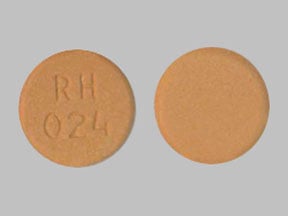
Antacid Coupons & Savings Card – Discount Prices from $3.90
Brand for: Calcium carbonate antacid
My prescription
Edit
500MG, Calcium Carbonate Antacid (30 Tablet Chewables)
Select pharmacy

Albertsons
$3.90
COUPON PRICE
Walgreens
$3.90
COUPON PRICE
Walmart
$10.61
COUPON PRICEAntacid savings card
Show this card to your pharmacist
Albertsons
$3.90
BIN
ID
PCN
GRP
011867
LH11F8FCD7
HT
LABH001
Powered by
Price history for Antacid (brand) & Alum & Mag Hydroxide-simeth (generic)
30 Tablet Chewables, 30ML of 200-200-20MG/5ML
Average retail price for Antacid
Average retail price for Alum & Mag Hydroxide-simeth
Average SaveHealth price for Alum & Mag Hydroxide-simeth
Our price history data is based on aggregated prescription data collected from participating pharmacies in America. Our prescription data updates daily to reflect the latest price changes. If you notice a missing data point, it means there wasn't sufficient data available to generate a monetary value for that date.
Over the last 12 months, the average discount price of Antacid is $7.65 using the SaveHealth savings card. That's an average savings of 65.59% on Antacid with our discount card.
*Retail prices are based on pharmacy claims data, and may not be accurate when we don't have enough claims.
Antacid (Calcium Carbonate Antacid) dosage forms
Dosage Quantity Price from Per unit 500MG 30 Tablet Chewables $7.58 $0.25 500MG 1 Tablet Chewable $7.50 $7.50 500MG 150 Tablet Chewables $7.91 $0.05 500MG 500 Tablet Chewables $8.88 $0.02
| Dosage | Quantity | Price from | Per unit |
|---|---|---|---|
| 500MG | 30 Tablet Chewables | $7.58 | $0.25 |
| 500MG | 1 Tablet Chewable | $7.50 | $7.50 |
| 500MG | 150 Tablet Chewables | $7.91 | $0.05 |
| 500MG | 500 Tablet Chewables | $8.88 | $0.02 |
What are antacids used for?
Antacids are used to neutralize stomach acid and provide relief from symptoms such as heartburn, indigestion, and upset stomach. They can help alleviate discomfort associated with conditions like gastroesophageal reflux disease (GERD) and peptic ulcers.
Why would you take antacids?
Antacids are taken to neutralize stomach acid and provide relief from symptoms such as heartburn, indigestion, and upset stomach. They can help alleviate discomfort associated with conditions like gastroesophageal reflux disease (GERD) and peptic ulcers.
Do antacids help with trapped gas?
Antacids are primarily used to neutralize stomach acid and relieve symptoms of heartburn or indigestion. They may not be very effective for relieving trapped gas. For trapped gas, simethicone-based products or other remedies specifically designed to reduce gas may be more helpful. It's advisable to consult with a healthcare provider for appropriate treatment options.
